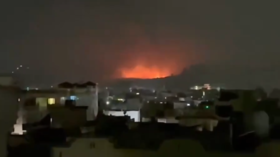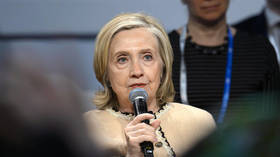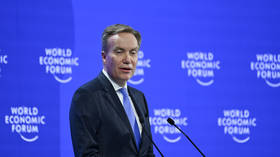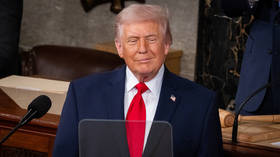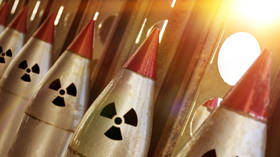Israel’s 'act of war' against Syria – Madness or cold calculation?
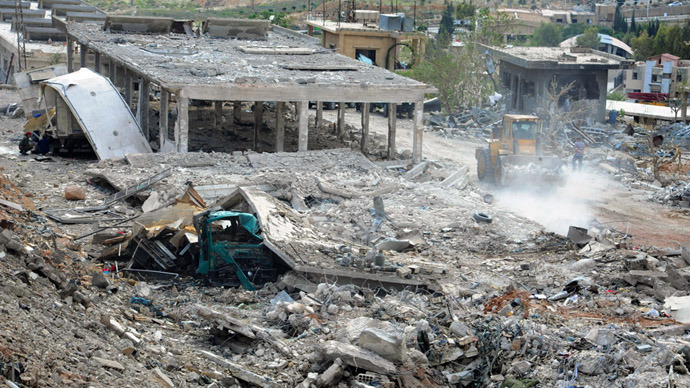
Israel’s bombing of Syria is a sign Tel Aviv and Washington are preparing international opinion, and gearing up for a full-scale Libya-style NATO-IDF air campaign to obliterate Syria.
On May 3-4 the Israeli Defense Force (IDF) launched two successive aerial bombing strikes deep inside Syrian territory, reportedly against the Jamraya military research center near Damascus Airport. While Israeli spokesmen have been coy about admitting responsibility, the Obama Administration confirmed and endorsed the bombings in Syrian sovereign territory. By precepts of international law, Israel has committed acts of war against Syria, in violation of the UN Charter.
The alleged justification for the Netanyahu regime, which seems to set another set of laws for itself as the norms of international law, was the claim that the strikes targeted a warehouse storing Iranian Fateh-110 “game changing” missiles in transit to the Lebanese Hezbollah. In January the IDF made a similar air strike to destroy a convoy of advanced air defense missiles en route to Hezbollah that would hinder Israel’s ability to enter Lebanese airspace unharrassed.
To grasp what is going on inside Tel Aviv a recent timeline helps. On April 27, before Israel embarked on action against Syria, Russian Deputy Foreign Minister Mikhail Bogdanov forged a new Russian alliance with Hezbollah in Beirut. According to Debka.com, an online source with reported close ties to the Israeli intelligence community, “This was Putin’s answer to Obama’s direct appeal for a partnership in the effort to terminate the Syrian conflict. Obama’s rejoinder was the green light he gave Israel to go for Iranian and Hezbollah targets in Syria.”
On April 30, Hezbollah leader Hassan Nasrallah made a public speech in which he for the first time indicated that his organization was ready to come to the active aid of Assad’s Syrian regime in the fight against Al Qaeda and assorted foreign and domestic “opposition” to Assad’s rule. Nasrallah also said charges that Syria used chemical sarin weapons were fabricated to justify foreign intervention. At the same time Iran called in the UN to investigate alleged use of chemical weapons in Syria.
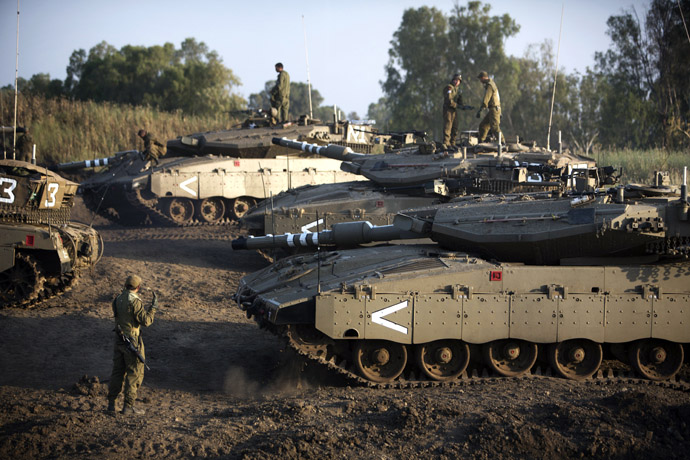
The next day, on May 1, President Barack Obama said the US is now ready to arm Syrian rebels and to increase efforts to topple Bashar al Assad. On May 3-4 the IDF bombing strikes took place. Then on May 6 the United Nations Independent Commission of Inquiry on Syria issued a statement that they had no evidence that the Syrian Government has used chemical weapons, sarin or other, against the rebel insurgents. Instead, the UN found evidence that the rebels had used sarin and tried to blame it on the regime. No small embarrassment for Washington and Tel Aviv which claimed otherwise.
The Israeli bombings come coincidentally at a time when direct reports from within Syria indicate major recent successes of the Syrian Army in rolling back rebel held areas along the border to Lebanon. Until Israel or Washington are able to produce overwhelming evidence to the contrary, the weight of suspicion for the Israeli acts of war has to be not interdiction of potential “game changer” missiles to Hezbollah, but rather an attempt by Israel, with Washington backing, to prepare the climate of world opinion for a full-scale Libya-style NATO-IDF air campaign to obliterate Syria, as more than two years of surrogate arming and training of mercenaries and even Al Qaeda terrorists to wage a regime destruction in Syria appear to have failed. The Netanyahu aggressions are an ultra-high-risk gamble that could colossally backfire on Tel Aviv as well as Washington. The Shi’ite alliance of Tehran-Damascus-Hezbollah in Lebanon is backed firmly by Putin’s Russia with China supporting. The rebels are backed by Qatar, Saudi Arabia, Washington and now Israel. Already Syria, Iran and Hezbollah have promised retaliation. The situation has the potentials for conflict out of control.
Is anyone for the rule of international law, notions of just and unjust wars, classical diplomacy and basic human rights for a change?
The statements, views and opinions expressed in this column are solely those of the author and do not necessarily represent those of RT.
The statements, views and opinions expressed in this column are solely those of the author and do not necessarily represent those of RT.



